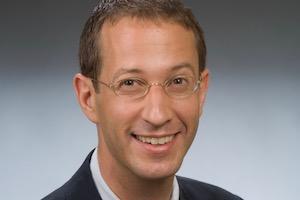Message from the Dean about Fall 2020

Dear students,
I welcome you to the College of Arts and Sciences in what has been an extraordinarily difficult time for you. The decisions you’ve made have been shaped by upheaval—a growing global pandemic, the resulting economic disaster, and a long-overdue national reckoning with systemic racism that has sparked the largest civil rights movement in half a century.
But I want to share a thought with you: perhaps this pandemic, its snowballing fallout, and the burgeoning demand for racial and social justice have provided the catalyst for a transformation of our society toward a world that is more just and more humane.
Higher education can contribute to that transformation, which is why the theme of the university’s strategic plan is “Changemakers for a Changing World.” In the College of Arts and Sciences, our faculty members are conducting research into economic and racial injustice in the spread and treatment of Covid-19 and have tracked and reported these inequities in the pandemic to help produce better policies. Faculty with research expertise on health and social inequality in our departments of health studies, sociology, anthropology, and history are providing PPE to DC-area healthcare providers as well as emergency educational resources for the DC public schools. Others have been working with the homeless, food insecure, incarcerated or recently incarcerated and other vulnerable populations in DC and other parts of the country.
Our math faculty and students turned on a dime, shifting the content of a summer course to focus on pandemic modeling. Psychology faculty are studying the influence of gratitude and mindfulness in times of turmoil like this, and ways to recognize and overcome stress and anxiety. The Economics Department hosted a virtual global conference of economic forecasters to try to understand the economic fallout and what policies can best address it.
Beyond their pandemic-related work, our faculty are engaged in other exciting initiatives that undergraduates can also get involved with. Environmental Science professors will be meeting face-to-face with students in the Civil War-era Battery Kemble Park near campus to explore mineralogy, geomorphology, erosion, soil formation, and forest succession. Through AU’s Department of Physics, the Integrated Space Science and Technology Institute (ISSTI), and the DC NASA Space Grant Consortium (located at AU), undergraduates can work on projects with AU professors and NASA scientists on topics including astrophysics, solar physics, astrobiology, and astrochemistry. They may also explore emerging fields like artificial intelligence for physics and space research. Undergraduates will conduct experiments in the brand new, state-of-the-art Hall of Science labs, working alongside biology faculty studying the long-term effects of chemical exposures during human development, or learning a variety of molecular and biochemical techniques applicable to both academia and industry.
Beyond their pandemic-related work, our faculty are engaged in other exciting initiatives that undergraduates can also get involved with. Environmental Science professors will be meeting face-to-face with students in the Civil War-era Battery Kemble Park near campus to explore mineralogy, geomorphology, erosion, soil formation, and forest succession. Undergraduates will conduct experiments in the brand new, state-of-the-art Hall of Science labs.
The Department of Performing Arts will explore a wide range of creative experiences, from remote collaboration through technology to in-person and physically distanced ensemble work in our larger performance spaces or outdoors. Our Department of Art plans to provide a quality hybrid learning experience that will vary depending on the content and instructional needs of each course. The AU Museum will shift its “Contested Space” exhibition online in order to explore issues surrounding the upcoming presidential election, and because the museum itself is closed it will lend its space to the rest of AU Arts.
The world is functionally online now, and AU faculty have been working all summer with our technical teams to reimagine online education and develop hybrid courses with face-to-face experiences in the classroom and in the field. The sudden switch to remote learning in March taught us a lot about what can be accomplished online, and this will be further enhanced come fall, as we shift from emergency measures to more carefully designed and integrated hybrid and online courses. They will leverage all the advantages of networked communication to build on the foundation of our high-quality, student-centered teaching, with close, meaningful interactions with faculty who are accomplished scholars and world-changers in their own right.
The protests against systemic racism and police brutality this summer have only increased AU’s commitment to justice. We have reinforced our push for racial equity with a renewed commitment to the Antiracist Research and Policy Center. Several College faculty members are actively involved in increasing the numbers of underrepresented students and faculty in the STEM fields at AU. We have a new leadership team devoted to our Diversity, Equity, and Inclusion initiative to foster a campus climate where everyone is valued and respected.
We hope you will check the AU website for updates on plans for fall instruction as well as all the health and safety precautions that are being taken. You can find the latest details for the plan, “AU Forward,” here.
AU has always been a community of passionate students and faculty. Every student who joins our university makes it better through that passion and energy as well as a willingness to reach beyond one’s comfort zones. It is all about commitment in action. We are excited that you will be joining us for the journey and look forward to facing the challenges and opportunities of these times together.
With best wishes,
Max Paul Friedman
Interim Dean, College of Arts and Sciences
